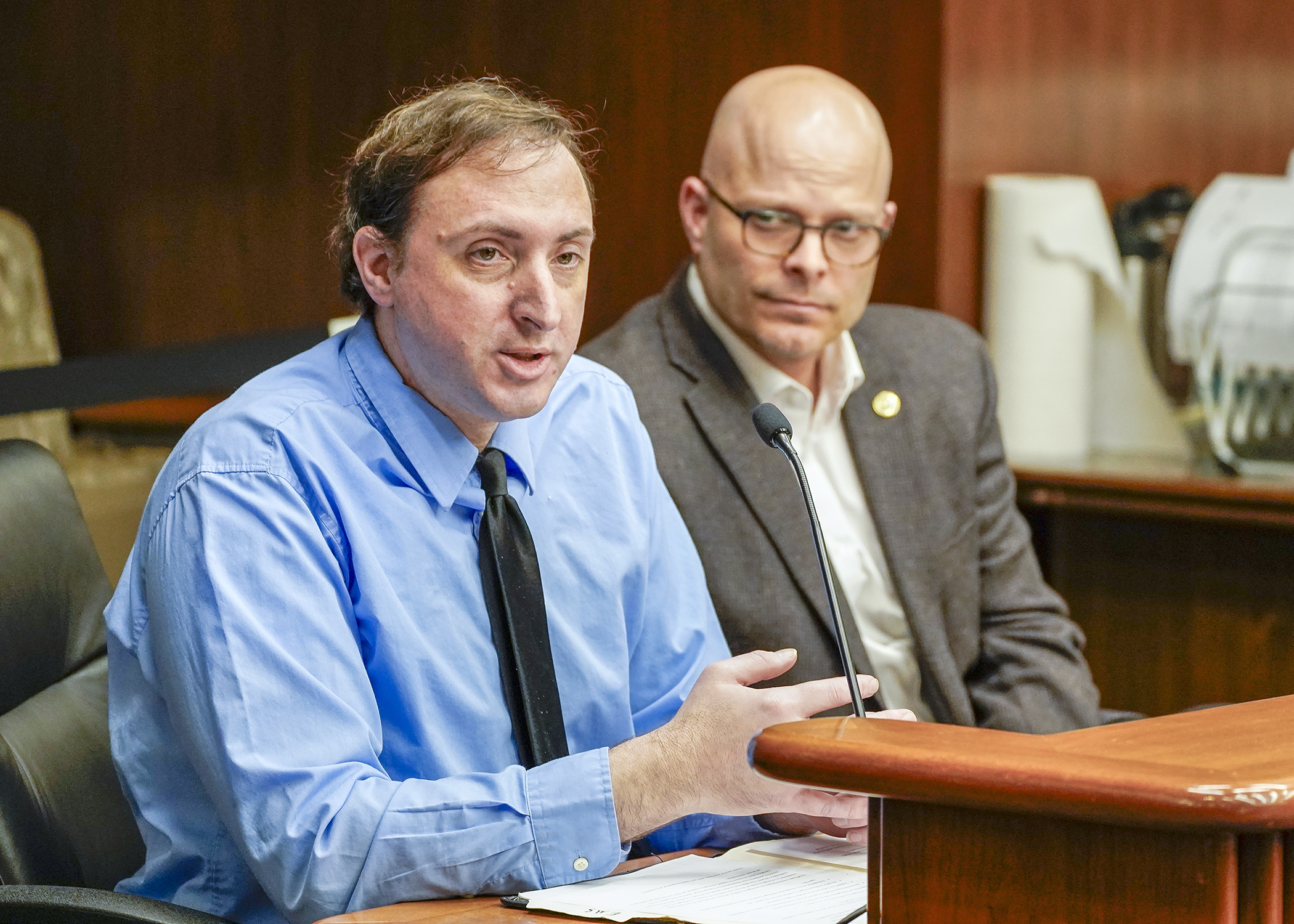House bill would bolster local ambulance services facing ‘real and serious’ funding challenges

The very entities that rush to your aid during a medical crisis are in need of emergency care themselves.
Sponsored by Rep. Dave Lislegard (DFL-Aurora), HF3992, as amended, would allocate up to $122.5 million in one-time funding in fiscal year 2025 to public and private ambulance services throughout the state.
The House Health Finance and Policy Committee approved the bill on a split-voice vote Tuesday and referred it to the House Taxes Committee.
To receive funding, an ambulance service would need to file an application delineating its revenue and expenses. Volunteer hours would be calculated as an expense at $34 an hour. By Dec. 1, 2024, state officials would need to certify the aid amount for each provider and payment would be made by Dec. 26, 2024.
“The situation is real and serious for our smallest communities,” said Cap O’Rourke, executive director at the Minnesota Association of Small Cities. He said one source of the problem is low reimbursement rates from Medicare and Medicaid.
Rep. Anne Neu Brindley (R-North Branch) expressed frustration that the Legislature did not act last year when the state had the largest projected budget surplus in its history.
“We knew this problem existed and we didn’t fix it when we had the chance to do so,” she said.
“This is a problem that has been building for many, many years,” said Rep. Tina Liebling (DFL-Rochester), the committee chair. She said she does not recall any Republicans bringing a bill forward last year.
Rep. Jeff Backer (R-Browns Valley) said he sponsored a $30 million bill three years ago.
In his supplemental budget request released Monday, Gov. Tim Walz calls for spending $16 million to address the problem. Of that, $6 million would be for transferring the responsibilities of the Emergency Medical Services Regulatory Board to a proposed Office of Emergency Medical Services, and for a “sprint medical model” pilot project to test different ways of providing triaged emergency medical services in communities.
“This is not a luxury, in many cases it’s life or death,” Sen. Andrew Lang (R-Olivia) said in a press release criticizing the governor’s request. “Suggesting $16 million is enough to triage the situation is offensive. The cost of an ambulance is about $400,000, and if distributed equally, $16 million is about $40,000 per primary service area.”
The proposed Office of Medical Services has been met with controversy from providers throughout the state who fear the governor-appointed commissioner would lead to political “ping pong” each time a new governor is elected.
Related Articles
Search Session Daily
Advanced Search OptionsPriority Dailies
Speaker Emerita Melissa Hortman, husband killed in attack
By HPIS Staff House Speaker Emerita Melissa Hortman (DFL-Brooklyn Park) and her husband, Mark, were fatally shot in their home early Saturday morning.
Gov. Tim Walz announced the news dur...
House Speaker Emerita Melissa Hortman (DFL-Brooklyn Park) and her husband, Mark, were fatally shot in their home early Saturday morning.
Gov. Tim Walz announced the news dur...
Lawmakers deliver budget bills to governor's desk in one-day special session
By Mike Cook About that talk of needing all 21 hours left in a legislative day to complete a special session?
House members were more than up to the challenge Monday. Beginning at 10 a.m...
About that talk of needing all 21 hours left in a legislative day to complete a special session?
House members were more than up to the challenge Monday. Beginning at 10 a.m...